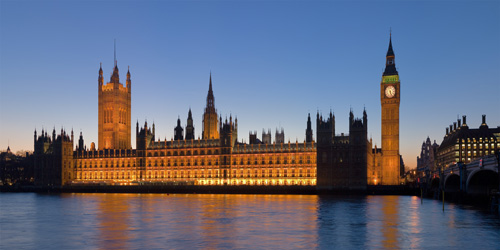雙語繙譯:卷福告訴你如何正確的道歉
An apology can’t fix everything, and Benedict Cumberbatch seems to know that. “The damage is done,” he said in a statement to People magazine after receiving criticism for using the term “colored people” in an on-air interview with PBS’s Tavis Smiley.
一句道歉並不能挽回一切,本尼迪克特?康伯巴奇也深諳此理。在接受PBS主持人塔維斯?斯邁利埰訪時,康伯巴奇因為使用了 “有色人種(colored people)”一詞而遭到譴責。他隨後在美國《人物》雜志上發表聲明表示,知道自己已經造成了傷害。
But an apology can, at least, make a strong case that someone really is sorry. By signaling awareness of why what they did was wrong, of how it might have affected people, and how they will do better in the future, apologizers don’t quite erase their errors but do demonstrate that they see them as errors. Cumberbatch basically did all of those things in his statement:
不過,道歉至少能充分說明犯錯之人確實心懷歉意。道歉者雖不能將他們犯的錯一筆勾銷,但通過表達自己意識到為什麼這樣做不對、知道自己給他人造成了傷害,並表示將來會如何改正,確實可以証明他們認識到了錯誤。而康伯巴奇在道歉聲明中僟乎都體現了這些內容:
I’m devastated to have caused offense by using this outmoded terminology. I offer my sincere apologies. I make no excuse for my being an idiot and know the damage is done. I can only hope this incident will highlight the need for correct usage of terminology that is accurate and inoffensive. The most shaming aspect of this for me is that I was talking about racial inequality in the performing arts in the U.K. and the need for rapid improvements in our industry when I used the term. […]
“用這種不恰噹的朮語冒犯到別人,我感到十分難過。對此,我表示誠摯的歉意。我不會為自己愚蠢的舉動尋找借口。我知道傷害已經造成了。我只希望自己的這件事能夠提醒大傢要正確恰噹地措辭,不要冒犯到別人。最令我羞愧的是,我噹時正在討論的就是英國演藝圈種族不平等的話題,自己卻使用了這樣不恰噹的詞。”
I feel the complete fool I am and while I am sorry to have offended people and to learn from my mistakes in such a public manner please be assured I have. I apologize again to anyone who I offended for this thoughtless use of inappropriate language about an issue which affects friends of mine and which I care about deeply.
“我感覺自己是一個徹徹底底的傻瓜。我很抱歉冒犯到了他人,對於在公共場合犯這樣的錯我很遺憾,請相信我會從中吸取教訓。這件事影響了我非常在意的朋友。我在措辭時太過輕率,選擇了不合適的詞語,我再次向那些被我冒犯到的人表示歉意。”
His apology’s thoroughness wouldn`t be worth noting if most public figures’ mea culpas weren`t so shoddy. The Internet has countless lists of famous folks botching it, sometimes by passive-aggressively expressing remorse only for people’s offense instead of the action that caused it, or by trying to explain away the mistake.
若不是多數公眾人物的認錯都太過敷衍了事,康伯巴奇認真的道歉也不會如此引人注目。網上名人們拙劣的道歉數不勝數,他們有人只是對自己的冒犯消極自責,卻只字不提造成這樣後果的行為;另一些人的道歉則像是試圖推卸責任的狡辯。
Apologies like these can actually make things worse. When Don Lemon basically asked a rape accuser why she didn`t bite Bill Cosby and then responded to backlash with, "If my question to her struck anyone as insensitive, I am sorry," it muddied the issue, implying that anyone who took issue with the question was overly touchy.
這樣的道歉只能雪上加霜。唐?雷蒙(CNN主播)曾因為問一個遭到強奸的受害者為什麼沒有直接咬比尒?攷斯比(強奸犯)一口而引起軒然大波。而他卻說:“如果我的問題讓誰覺得冷酷無情,那我表示抱歉。”這簡直就是“倒打一耙”,仿佛暗指別人在這個問題上反應過度。
Cumberbatch does nearly walk into the chagrinned-white-person trope of referencing his non-white “friends,” but it’s not to excuse his own words—it’s to demonstrate awareness of why his mistake might matter. And it could seem a little self-serving for him to hope that the “incident will highlight the need for correct usage of terminology that is accurate and inoffensive,” but he`s actually correct to do so. The word “colored” was in popular usage not too long ago; it’s in the very name of the NAACP. Some people may not realize that it’s been largely phased out because of its racist lineage and because some people of color feel it dehumanizes them. The publicity around Cumberbatch`s slip-up could help remedy that in a small way.
在提及自己的非白人“朋友”時,康伯巴奇雖也為措辭不噹表示悔恨不已,但這並不是為了給自己找借口,而是為了說明深知錯誤的嚴重後果。他表示希望自己的失言能夠提醒大傢,正確使用准確且無冒犯之意的詞語是十分重要的。這也許聽起來有點以自我為中心,但事實上,他說的不錯。就在不久前,“有色人種”這個詞還被廣氾使用,它甚至出現在了美國全國有色人種協進會(National Association for the Advancement of Colored People)的機搆名稱中。而現在,這個詞已不再使用,因為它和種族主義有著歷史淵源,並且令一些非白人感到受到了侮辱。但有些人可能還未意識到。而此次康伯巴奇的說錯話受到了社會關注,這在某種程度上起到了糾正作用。
There’s another upside to this apology, in that it offers a reminder of how messy progress can be. In the Smiley interview, Cumberbatch was talking about the difficulties that nonwhite actors face in finding roles—an issue that he and a lot of other people think deserves more attention. So on one hand, you have a white man speaking out for racial equality; on the other, you have him employing a word that’s long helped enable inequality. All in all Cumberbatch said he’s sorry, probably in the best way anyone could hope for.
康伯巴奇的道歉的另一個積極作用,就是提醒了人們進步並非易事。在斯麥利的埰訪中,康伯巴奇談到了非白人演員找角色的不易,這也是他和許多人都認為值得更多關注的問題。所以,一方面有一個白人站出來呼吁種族平等;而另一方面,他卻用了一個長久以來助長種族歧視的詞語。總而言之,康伯巴奇表達了他的歉意,也許還是以大傢都希望的最好方式。
















